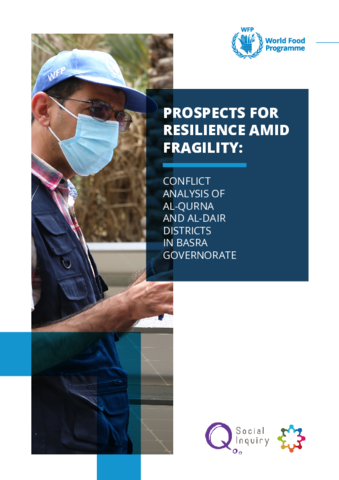
This report is part of a pilot project and research in Southern Iraq in which the Iraq CO is field-testing theories of change on how WFP can contribute to peace or social cohesion in vulnerable and food insecure communities via adaptive livelihoods and resilience programming.
The conflict analysis is aimed to provide WFP with an understanding of how shocks and stressors connected to lack of livelihood opportunities, climate change, access to/competition over natural resources and food insecurity are resulting in or potentially leading to conflict and tensions in and between communities. The analysis also provides an understanding of current powerful actors, power relations and how WFP activities could potentially impact those relationships or possibly reinforce power divides.
The outcomes of the analysis are linked to current and future resilience-building projects by matching the findings with WFP’s mandate, activities and implementation modalities to determine where our work interacts with the identified conflict drivers, dynamics and actors. Overall, we are determining how WFP can contribute to:
1. Indirect decrease of tensions and conflict related to livelihoods, access, user rights, due to improved adaptive livelihoods opportunities;
2. Improved relationships between groups, due to cooperation within project activities.

